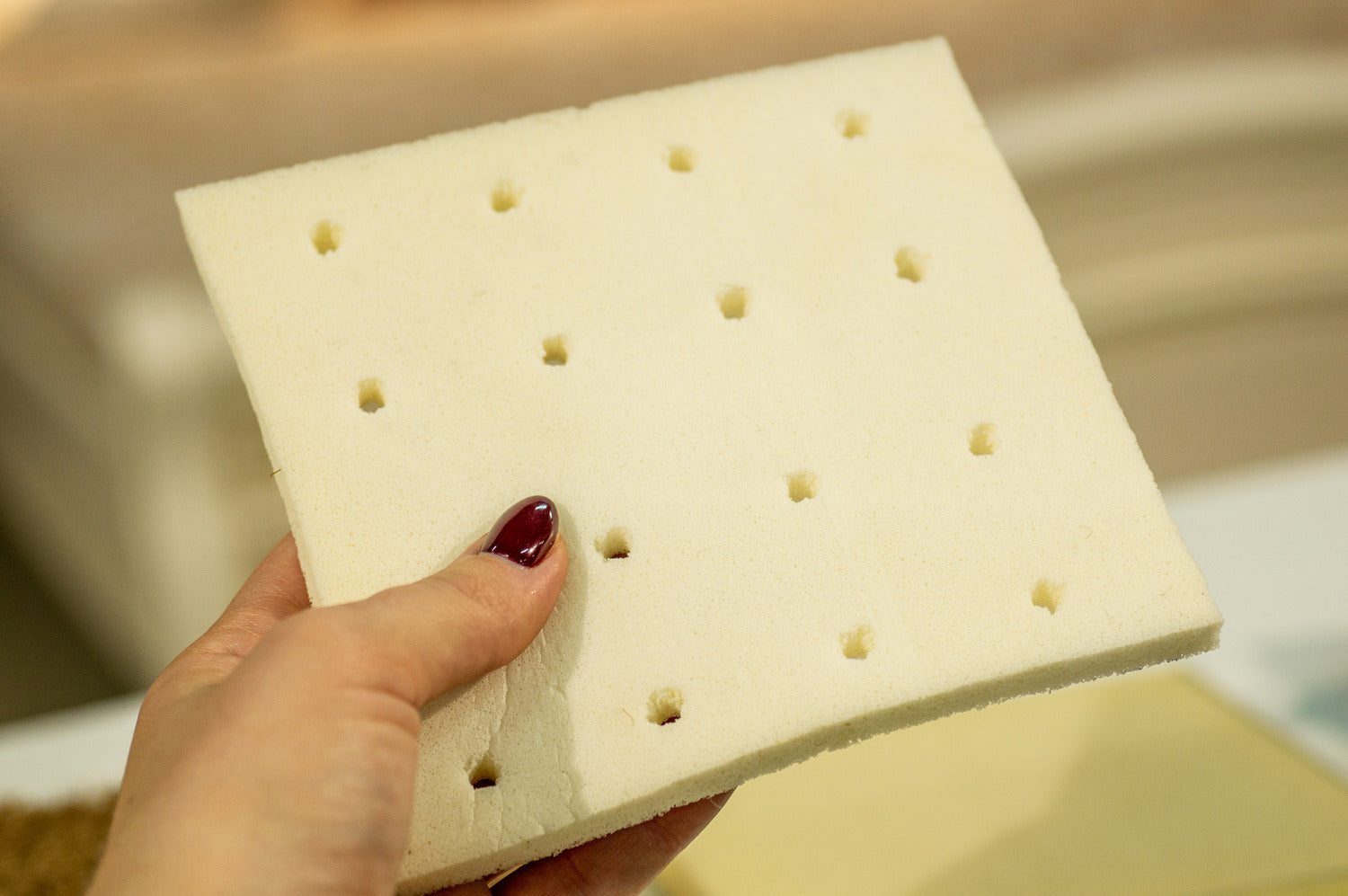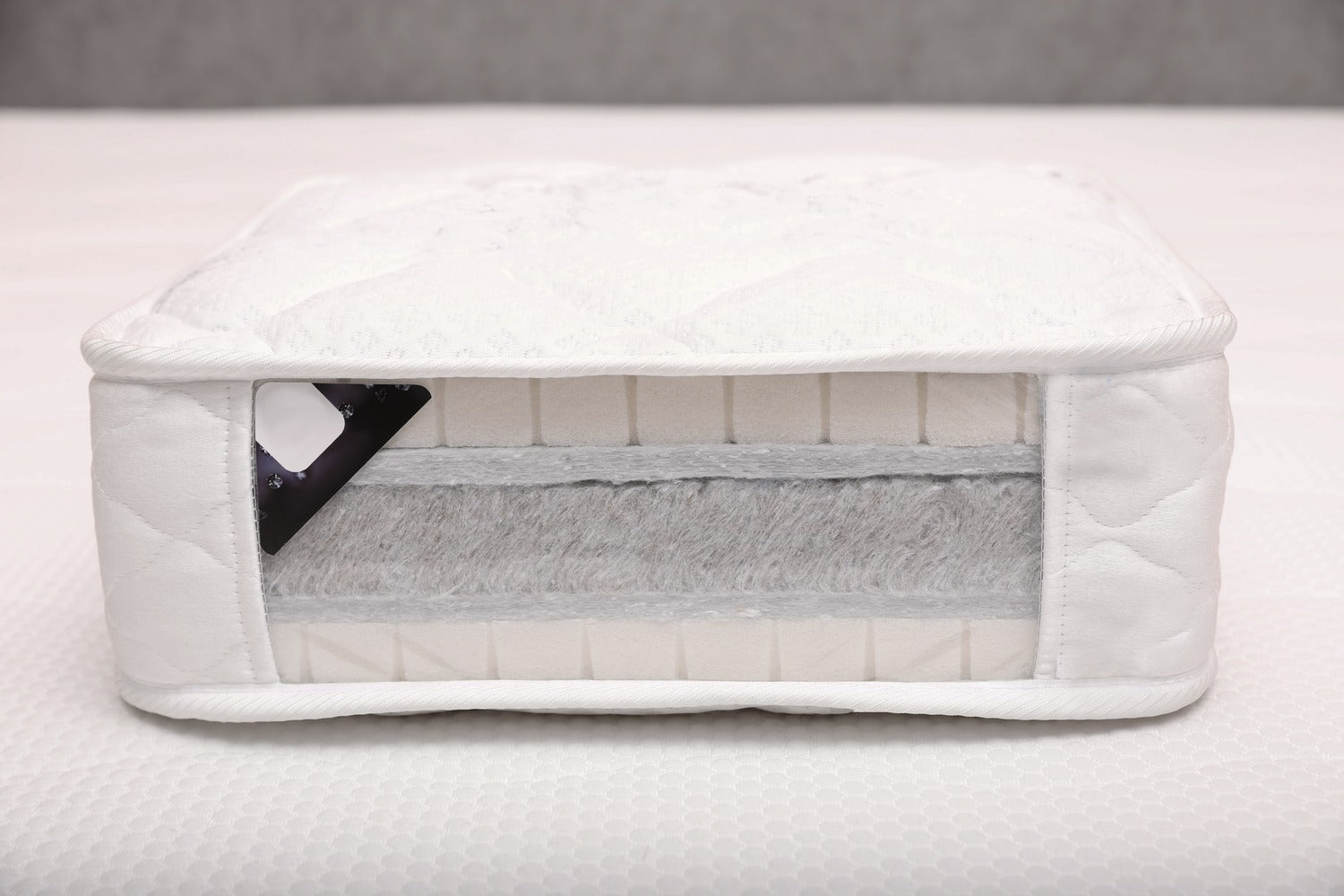Cyprus's warm Mediterranean climate and unique living conditions create specific considerations when selecting the perfect pillow. With numerous options available on the market, understanding what makes a pillow right for your individual needs is crucial for achieving quality sleep and maintaining proper spinal health.
Whether you're dealing with the island's humidity, specific health concerns, or want to upgrade your sleep experience, choosing the right pillow requires careful consideration of multiple factors. In this blog post, we’ll guide you through the key factors to consider and help you select the pillow that best suits your needs.
What is the perfect pillow for you?
The perfect pillow maintains your spine's natural alignment whilst providing personalised comfort and support. Rather than following generic recommendations, your ideal pillow should align with your unique combination of sleeping position, body type, mattress firmness, and personal comfort preferences. A well-chosen pillow fills the gap between your head and mattress, supports the natural curvature of your neck, and remains comfortable throughout the night without causing pressure points or disrupting your sleep.
Individual factors such as body weight, shoulder width, and any existing neck or back issues all influence what constitutes the perfect pillow for your specific needs. The goal is to find a pillow that keeps your head, neck, and spine in neutral alignment, allowing your muscles to relax completely during sleep, whilst preventing morning stiffness or pain.
Why is it important to choose the right pillow?
It is important to choose the right pillow because it supports the natural alignment of the head, neck, and spine, which helps prevent discomfort, aches, and pain during sleep. The correct pillow can also improve breathing, reduce snoring, and enhance overall sleep quality by keeping airways open and maintaining a healthy sleep posture.
Neck and Spine Alignment
Proper pillow selection is fundamental to maintaining healthy spinal alignment during sleep. When your pillow is too high or too low, it causes your neck to bend unnaturally, leading to muscle strain and potential long-term health issues. The right pillow maintains the natural curvature of your spine, ensuring that your neck remains in line with your vertebrae throughout the night.
Poor alignment can result in tension headaches, chronic neck pain, and even back problems that extend well beyond your sleeping hours. Your spine's natural alignment is essential for allowing your muscles to relax and your body to recover properly during sleep.
Comfort and Pressure Relief
A properly selected pillow provides crucial cushioning and support, ensuring your sleep remains undisturbed by discomfort. Quality pillows help relieve pressure on sensitive areas, including the head, neck, and shoulders, which is particularly important for individuals suffering from tension headaches or chronic pain conditions.
The right pillow material and firmness level work together to distribute weight evenly, preventing the development of pressure points that can cause you to toss and turn during the night. This pressure relief is especially vital in Cyprus's warm climate, where comfort becomes even more critical for maintaining uninterrupted sleep.
How to choose the right pillow?
Selecting the right pillow involves a systematic approach considering your dominant sleeping position, body characteristics, and comfort preferences. Side sleepers require firm or extra-firm pillows with higher loft (5-7 cm or more) to fill the substantial gap between their neck and shoulders, ensuring spinal alignment.
Back sleepers benefit from medium-loft, medium-firm pillows that support the natural curve of the neck without pushing the head too far forward. Stomach sleepers need soft, low-loft pillows that allow the head to rest close to the mattress, minimising neck strain. Combination sleepers should opt for a medium-firm mattress and adjustable options, such as shredded memory foam, that can accommodate changes in position.
Consider your mattress firmness as well—a firm mattress requires a softer pillow for proper alignment, whilst a soft mattress pairs better with a firmer pillow to prevent excessive sinking. The width of your pillow should match your shoulder width to ensure adequate support.
What criteria should you consider when choosing a pillow?
Sleeping position forms the primary criterion, as different positions create varying support needs. Your dominant sleep position determines the required loft, firmness, and shape characteristics that will maintain proper spinal alignment throughout the night.
Material and fill type significantly impact both support and temperature regulation—crucial considerations for Cyprus's climate. Memory foam and latex provide excellent contouring support, whilst down and feathers offer softer, more breathable options. Synthetic materials, such as polyester, provide budget-friendly alternatives but may retain more heat.
Pillow height (loft) must correspond to your body size and sleeping position. A low loft (less than 3 inches) is suitable for stomach sleepers and those with softer mattresses. A medium loft (3-5 inches) works well for back sleepers, while a high loft (more than 5 inches) benefits side sleepers and individuals with larger builds.
The firmness level should complement your mattress firmness and sleeping position preferences. Consider that pillows typically lose their firmness over time, so selecting one that is slightly firmer than your immediate preference can account for the natural settling that occurs.
Hypoallergenic properties are fundamental in Cyprus's humid climate, where dust mites and allergens can accumulate more readily. Materials like latex and memory foam naturally resist allergens, whilst down alternatives provide similar comfort without triggering sensitivities.
Which materials are best for choosing a pillow based on sleep needs?
Memory Foam excels for individuals requiring pressure relief and spinal alignment support. It contours precisely to head and neck shapes, making it ideal for side sleepers and those with neck pain. However, traditional memory foam can retain heat, though modern gel-infused and ventilated versions address this concern, making them more suitable for Cyprus's warm climate.
Latex offers responsive support with superior breathability compared to memory foam. Natural latex provides a bouncier, softer contour while maintaining excellent cooling properties. It's naturally hypoallergenic, antifungal, and durable, lasting significantly longer than most other materials. This makes latex particularly suitable for Cyprus's climate and those seeking natural, eco-friendly options.
Down and Feathers provide luxurious softness and excellent breathability. Duck and goose feathers create lightweight, naturally cooling pillows that are ideal for stomach sleepers or those who prefer plush comfort. However, they may not provide sufficient support for side sleepers and can trigger allergies in individuals with sensitive skin.
Synthetic Fills, including polyester and microfibre, offer affordable and hypoallergenic alternatives. These materials are easy to wash and maintain, making them practical for Cyprus's humid conditions, though they typically have shorter lifespans than natural materials.
Speciality materials, such as buckwheat hulls, provide firm, adjustable support with excellent airflow, while bamboo fibres offer moisture-wicking properties ideal for hot sleepers.
What is the best pillow for your sleeping position?
Side Sleepers require the highest support levels, needing firm to extra-firm pillows with substantial loft to bridge the gap between their shoulders and heads. Memory foam or latex pillows work exceptionally well, providing consistent support that remains undiminished under pressure. Consider contour or cervical pillows explicitly designed for side sleeping, and measure the distance from your head to the shoulder edge as a starting point for determining the ideal pillow thickness.
Back Sleepers benefit from medium-loft pillows that maintain the natural curve of the neck without over-elevation. Medium-firm materials, such as latex or high-quality memory foam, provide optimal support while preventing the head from tilting too far forward, which can contribute to snoring. A pillow with slight contouring can provide additional neck support.
Stomach Sleepers need the lowest profile pillows or may even sleep without one entirely. Soft, compressible materials like down, feathers, or low-profile memory foam prevent neck strain by keeping the head close to mattress level. Many stomach sleepers find success with thin, soft pillows or body pillows that provide hugging support rather than head support.
Combination Sleepers require versatile options that accommodate position changes throughout the night. Adjustable pillows with removable fill, medium-firm materials, or shredded memory foam offer the flexibility needed for various sleeping positions.
When should you replace your pillow?
Timeline guidelines suggest replacing pillows every 1-2 years to maintain proper support and hygiene. However, material type significantly affects lifespan—memory foam and latex pillows can last 5-10+ years, down and feathers 5-10+ years, whilst polyester pillows typically need replacement within 6 months to 2 years.
Physical warning signs include visible yellowing or staining that cannot be removed, persistent unpleasant odours, lumpy or flat appearance, and loss of original shape. If your pillow fails the "fold test"—folding it in half and it doesn't spring back to its original form—it's time for replacement.
Sleep quality indicators, such as consistently waking with neck stiffness, shoulder pain, or headaches, suggest that your pillow is no longer providing adequate support. Additionally, if you find yourself constantly adjusting your pillow during the night or needing multiple pillows for comfort, replacement is likely necessary.
Health concerns, including increased allergy symptoms, sneezing upon waking, or respiratory irritation, may indicate the accumulation of dust mites or bacterial growth within the pillow. In Cyprus's humid climate, these issues can develop more quickly than in drier environments.
Where can you buy a new pillow in Cyprus?
At Panstromasew, we believe that quality sleep starts with the right support. That’s why we offer a wide range of pillows designed to meet every need—from soft and cozy microfiber pillows to memory foam and luxury designs that adapt perfectly to your sleeping style. You can explore our full collection at our showrooms in Nicosia (Latsia) and Limassol, where our team is always happy to guide you, or shop online with ease through our website.
With free delivery on orders over €50 across Cyprus and secure payment options, finding your ideal pillow has never been simpler. At Panstromasew, we don’t just sell pillows—we help you sleep better every night.
What mistakes should you avoid when choosing a pillow online or in-store?
When choosing a pillow online or in-store, several common mistakes should be avoided to ensure comfort, support, and long-term satisfaction.
Top Mistakes to Avoid
-
Ignoring Sleeping Position Needs: Failing to match pillow firmness and loft to one's sleeping style leads to discomfort—side sleepers need firm, high-loft pillows, back sleepers prefer medium, and stomach sleepers require soft, low-loft options.
-
Not Considering Allergies: Buying pillows made from non-hypoallergenic or synthetic materials can worsen allergies; always check for certifications and suitable materials if allergies are a concern.
-
Choosing the Wrong Pillow Height/Loft: Picking a pillow that's too high or too low causes neck pain and spine misalignment—select loft based on body type and sleep style.
-
Disregarding Mattress Type: Pillow and mattress should work together to keep the spine aligned—firm mattress may need softer pillow, while soft mattress might benefit from firmer pillow.
-
Buying Without Testing: Purchasing online without a trial or, in-store, not squeezing or feeling pillows may result in mismatch; opt for money-back guarantees or test periods.
-
Overlooking Care Instructions: Not checking whether pillows are machine washable or durable for regular use can shorten pillow lifespan or cause hygiene issues.
-
Prioritising Price Over Quality: Cheap pillows often lack support and durability; it pays to invest in higher-quality, certified products for better rest.
-
Selecting Wrong Size: Pillow size should fit the sleeper’s body and fill the gap between head and mattress, maintaining alignment—petite individuals may prefer smaller, while larger frames need oversized options.
-
Ignoring Temperature Regulation: Hot sleepers often choose pillows without cooling or breathable fabrics, leading to discomfort and night sweats.
Practical Advice
-
Take time to research, understand personal comfort preferences, and don’t rush decisions.
-
Review materials, support ratings, warranty, and trial period information when shopping online.
-
Test pillows in person when possible and take advantage of satisfaction guarantees.
Avoiding these mistakes helps find the ideal pillow for restful, healthy sleep and avoids common pitfalls in both online and in-store shopping.




